- Home
- Parnell Hall
A Puzzle in a Pear Tree
A Puzzle in a Pear Tree Read online
Table of Contents
Title Page
Dedication
Praise
Acknowledgments
ANOTHER KIND OF PUZZLE
Chapter 1
Chapter 2
Chapter 3
Chapter 4
Chapter 5
Chapter 6
Chapter 7
Chapter 8
Chapter 9
Chapter 10
Chapter 11
Chapter 12
Chapter 13
Chapter 14
Chapter 15
Chapter 16
Chapter 17
Chapter 18
Chapter 19
Chapter 20
Chapter 21
Chapter 22
Chapter 23
Chapter 24
Chapter 25
Chapter 26
Chapter 27
Chapter 28
Chapter 29
Chapter 30
Chapter 31
Chapter 32
Chapter 33
Chapter 34
Chapter 35
Chapter 36
Chapter 37
Chapter 38
Chapter 39
Chapter 40
Chapter 41
Chapter 42
Chapter 43
Chapter 44
Chapter 45
Chapter 46
Chapter 47
Chapter 48
Chapter 49
Chapter 50
Chapter 51
Chapter 52
WITH THIS PUZZLE, I THEE KILL
Prologue
Chapter 1
About the Author
ALSO BY PARNELL HALL
Copyright Page
For Don,
who suggested
the live Nativity.
Raves for Parnell Hall’s A PUZZLE IN A PEAR TREE
“Ideal for the puzzle fan as well as the mystery fan, this frothy, funny and ingenious fourth Puzzle Lady novel has enough plot twists for the most avid mystery reader.”
—The Dallas Morning News
“Parnell Hall has written another excellent amateur sleuth novel . . . with so many twists and turns, dead ends, and viable suspects that readers will want to finish the book in one sitting so they can puzzle out who did what to whom.”
—The Midwest Book Review
“The best yet . . . I can’t think of one negative thing to say about A Puzzle in a Pear Tree. Parnell Hall has outdone himself on this one.”
—Mystery News
“A whodunit of the first order.”
—The Chronicle-Herald (Halifax, Nova Scotia)
“Wonderfully funny. Parnell Hall has such a flair for making a mystery funny that reading his books is always a pleasure.”
—RT Bookclub,
Top Pick
“Delightful.”
—MLB News,
Holiday Homicides selection
“The brash and lovable Cora Felton is back with another mystery. . . . If you haven’t read one of the author’s whodunits, this might be a good time to start.”
—Abilene Reporter-News
“This year there are several treats, one of the best being this outing with Parnell Hall’s redoubtable Puzzle Lady, Cora Felton.”
—The Globe and Mail (Toronto)
“All will enjoy Hall’s nimble wordplay.”
—Booked & Printed
“Crossworders will relish.”
—The Denver Post
“The fun for fans of this series consists of the nexus between the plot and the puzzle. . . . Hall’s books involve the reader in the action the way few others do.”
—Richmond-Times Dispatch
“An ingenious series of lighthearted, humorous mysteries.”
—Winston-Salem Journal
“Cora’s indifference to proper holiday spirit and everyday civility saves the day as she untangles tinsel and public charades.”
—Kirkus Reviews
“Smooth prose and a tantalizing plot.”
—Library Journal
“Hall is a pure entertainer. . . . As one of the few active practitioners of the elaborate Golden Age–style detective novel, Hall should be cherished.”
—The Weekly Standard
“A Puzzle in a Pear Tree is a delight.”
—www.curledup.com
“Parnell’s wit runs hand in hand with his ability to create intriguing puzzles. . . . A thoroughly enjoyable evening’s entertainment.”
—www.iloveamystery.com
Raves for Parnell Hall’s PUZZLED TO DEATH
“The third in a series that we suspect will just keep getting bigger. Not only is the device a natural . . . but Cora Felton is an appealing character . . . quick as a cobra with her wit. . . . Almost as much fun as doing the Sunday Times puzzle.”
—American Way
“Funny, obnoxious, and deadly.”
—Rendezvous
“A thoroughly entertaining tale.”
—Chicago Sun-Times
“Crossword fans will enjoy Parnell Hall’s Puzzled to Death.”
—The Denver Post
“A fun meringue of a novel . . . the kind of mystery not often seen these days.”
—San Jose Mercury News
“Amusing . . . challenging . . . unique.”
—Southbridge, MA News
“Quirky . . . Cora is funny [and] irreverent . . . light reading with a twist.”
—Mystery News
“Intriguing puzzlers.”
—The Drood Review of Mystery
“Fun.”
—Chicago Tribune
“Another amusing chapter in the life of that fraudulent puzzle producer Cora Felton and her talented niece.”
—MLB News
Raves for Parnell Hall’s LAST PUZZLE & TESTAMENT
“[An] homage to the very entertaining, breezy mind-game mysteries of the 1930s and ’40s. Enjoy the show!”
—Los Angeles Times
“A witty, airy, and busy detective story . . . filled with love triangles, false leads, and danger.”
—The Dallas Morning News
“Cora is emerging as a lovable and unique sleuth. [She’s] no sweet-natured Jessica Fletcher or wise-as-an-owl Miss Marple. . . . This series is a joy for lovers of both crosswords and frothy crime detection.”
—Chicago Sun-Times
“(Last Puzzle & Testament ) has its merry way with the cozy concept of the small-town spinster-sleuth.”
—Los Angeles Times
“Fun from the first page . . . This cozy mystery has a slightly different point of view and pair of detectives.”
—The Dallas Morning News
“Takes a sweet-faced grandmother on the gumshoe spree of a lifetime.”
—The Washington Post Book World
“Cora’s heart-of-gold personality gives Last Puzzle & Testament a special feel that turns this novel into a keeper that will be read many times over in the years to come.”
—The Midwest Book Review
“The author proves himself very adept at constructing the puzzles that are at the core of his mystery. The reader gets a chance to solve the puzzles before the protagonists do, which adds to the fun.”
—Pittsburgh Post-Gazette
“A decidedly different pair of detectives.”
—Creative Logic
“Crossword puzzle fans, this one is for you.”
—The Oklahoman
“This novel’s puzzles within puzzles will charm and so will its attractive cast.”
—Booklist
“Just the ticket for the puzzle addict(s) on your list.”
—Booknews from The Poisoned P
en
“Laced with witty dialogue and enough twists to satisfy the most demanding of mystery fans.”
—Greenburg (PA) Tribune-Review
“Parnell Hall pulls off a clever and entertaining crossword-based mystery.”
—MLB News
Raves for Cora Felton’s debut in A CLUE FOR THE PUZZLE LADY
“Some puzzles are real killers . . . devious and delightful.”
—Chicago Sun-Times
“Deft . . . clever . . . fun.”
—Booklist
“The real lure here is the mystery, whose ingenuity takes quite unexpected forms en route to the final unmasking. Heaven for crossword fans, who’ll rejoice over the solve-as-you-go puzzle!”
—Kirkus Reviews
“Cora Felton is a delightfully different sort of sleuth—hardly the decorous, tea-sipping village spinster. In truth, she’s a hoot. I hope her niece can keep her out of too much trouble so that we can all savor future adventures of the Puzzle Lady.”
—Joan Hess,
author of the Claire Malloy and Maggody mystery series
“In addition to his trademark zippy, witty dialogue, Hall provides a dandy puzzle, congenial secondary characters, plenty of laughs, and a true original in Cora Felton, the Puzzle Lady.”
—Publishers Weekly
“A Clue for the Puzzle Lady is fresh, funny, and ingeniously devised. It kept me guessing right down to the end— just like a good crossword!”
—Will Shortz,
Crossword Editor, The New York Times
“Parnell Hall’s superb new series dazzles like the Fourth of July, crackling with fun, wordplay, more twists than a maze, and a clever, vulnerable, wild woman sleuth—Cora Felton, the Puzzle Lady. Sheer delight!”
—Carolyn Hart,
author of Death on Demand and the Henrie O mystery series
“A twisting plot, an intriguing puzzle, and suprisingly satisfying romance. This one is hard to beat.”
—Janet Evanovich
“A fresh series with an engaging sleuthing duo . . . a lighthearted romp.”
—Alfred Hitchcock Mystery Magazine
“A fun and entertaining story to challenge all mystery readers . . . . A great premise . . . lively characters, an intriguing plot and a well-written story.”
—Rendezvous
“A Clue for the Puzzle Lady is going to please puzzle fans and mystery lovers alike.”
—Romantic Times
ACKNOWLEDGMENTS
I would like to thank managing editor Kathleen Baldonado and design chief Glen Edelstein for action above and beyond the call of duty in reproducing the acrostics that appear in this book. Keeping track of my puzzles as they jump around in the text is probably a harder task than solving them. The dedication Kathleen and Glen show in getting this right is all too rare these days and I am deeply grateful for it.
ANOTHER KIND OF PUZZLE
An acrostic is a puzzle in which the answers to the clues are written over numbered dashes, and then the letters are transferred to correspondingly numbered squares in a grid. The filled grid forms a quotation. The first letters of the answered words spell out the name of the author and the title of the work.
Needless to say, the Puzzle Lady has never solved an acrostic, and can use all the help she can get.
1
“NO, NO, NO,” RUPERT WINSTON CRIED, SILENCING THE PIANO and vaulting up onto the stage with all the spry grace of a much younger man. Rupert tugged at his turtleneck, a habit he had when not particularly pleased. Which, in Cora Felton’s humble opinion, was almost all the time. In the few rehearsals she’d had, Cora had come to detest the “innovative and gifted” director, as the Bakerhaven Gazette had termed him, who had left the “stifling constraints of the Broadway stage” in order to “ply his craft in the liberating atmosphere of an enlightened village.”
Although no linguist, Cora Felton didn’t have to be hit over the head with a condescending remark to recognize one. Rupert Winston had Cora’s back up before she’d even met him. Being tapped to appear in Rupert’s Christmas pageant was the last thing in the world Cora Felton wanted. Had she been able to think of any polite way to get out of it, Cora would have done so.
Had she known what rehearsals would be like, an impolite way would have sufficed.
“Miss Felton.” Rupert Winston extracted his hand from his black turtleneck, entwined his long, slender fingers together, and rolled his steel-gray eyes to the heavens, as if invoking the deities to witness his tribulations in dealing with mere mortals, and inferior ones at that. “You are a milkmaid. A hearty, robust milkmaid, fresh from the fields, sunny and bright and imbued with a lust for life. If you are to sing the solo line, I have to hear the solo line. You cannot mumble it into your sleeve.”
Cora Felton set down her wooden milking stool, fixed the director with an evil eye. Rupert Winston was, in Cora’s humble opinion, one of those marginally famous men who affected rudeness as a sign of genius. The good citizens of Bakerhaven might be taken in, but not Cora. Particularly since Rupert invariably singled her out for abuse. Cora, who appeared in breakfast cereal commercials as the Puzzle Lady, suspected this was largely because she was on TV and he wasn’t.
Cora was sorely tempted to remind Rupert that she hadn’t got a sleeve, this wasn’t the dress rehearsal, and her milkmaid costume had yet to be sewn. She stifled the impulse and glanced around the stage, where the seven other maids a-milking stood holding their stools. “You’re absolutely right, Rupert,” she said sweetly. “I’m totally wrong for this part. I’m sure any of the other milkmaids could do better. I understand completely why you’d wish to replace me.”
Rupert Winston looked shocked. “Miss Felton. Did I say any such thing? Of course not. You’re perfect for the part. It’s just a question of pulling a performance out of you.”
Cora bit back a groan. Were there any way to agree with this fool and get on with it, Cora would have done so, but she knew from experience Rupert loved to pontificate. Under the guise of giving direction, he could run through his entire Broadway résumé at the drop of a hat. Already, she could see the other actors emerging from the wings to listen. They soon filled the stage. The piece was The Twelve Days of Christmas, complete with pipers piping, drummers drumming, and so on. Cora could barely calculate how many actors were in the show, let alone the odds of all of them ever doing it right.
“I’m not perfect for the part,” she protested. “I’m dead wrong for the part. I’m way too old. Just like the rest of your milkmaids—no offense, ladies—but your maids a-milking should be rosy-cheeked country girls in fetching peasant blouses.”
“You’re saying you can’t work without your costume?”
“No, I’m saying someone else should be wearing it. It’s just bad casting.” Cora pointed stage left, where her niece, Sherry Carter, stood in a cluster of nine attractive young women. “Look at your ladies dancing. They’re all young and pretty. They should be the lusty milkmaids, and we old biddies should be the refined ladies dancing.”
Rupert didn’t get mad. The director never got mad. Instead, he exhibited, as he always did, a tolerant amusement at the misguided views of the unenlightened.
“Yes, Miss Felton,” he replied. “That is how it is usually cast. Which is precisely why I have not done so here. This skit is deliberately ‘miscast,’ as you would characterize it, for, one would hope, humorous effect. Which, as you might have gathered, is the same reason for so many entrances and exits. Which is also why rehearsal time is so crucial. I hope I don’t have to spend too much of it reassuring you that you are right for your part.”
“I thought you were the one telling me I wasn’t doing it right,” Cora countered.
Rupert Winston chuckled. “Well, there is a huge difference between not doing it right and not being right for it. Trust me, you’re right for it.”
Harvey Beerbaum stuck his oar in, as the annoying, pedantic cruciverbalist was wont to do. “Come on, Cora,” he chided
. “If I can be a lord a-leaping, surely you can be a maid a-milking.”
That was hard to argue with. The sight of bald, portly Harvey leaping about the stage was so ridiculous, if he was willing to make a fool of himself, how could anyone else object?
“Can we get on with it?” Becky Baldwin griped. “I’m meeting a client in half an hour.”
“Did you hear that?” Rupert Winston said. “Becky has only a half an hour. So this is hardly time to be worried about our motivation.”
Cora Felton bit her lip. She hadn’t said a damn thing about her motivation, but she couldn’t point that out to Rupert without starting another argument, which would seem boorishly insensitive and inconsiderate, since Becky had to go.
Cora resented that too. Becky Baldwin—young, attractive, and as fashionable as ever in a scoop-neck sweater and pale blue skirt and vest—might have actually had a client, but as far as Cora was concerned, Becky’s pointing it out served only to remind everyone that she was a lawyer on the one hand, and a Star on the other.
Which, in the pageant, she was. Becky had been cast as the young woman in the song, the one who receives all the season’s bounty. In Rupert Winston’s version of the piece, Becky started each verse alone on stage, singing “On the whatever day of Christmas, my true love gave to me,” and then reacting to the stampede of gifts that surrounded her. A plum role, one that Cora felt should by rights have gone to her niece. But, as always happened between Sherry and Cora, Cora was the one pushed out front.
Rupert turned to the piano, where Mr. Hodges, the high school music teacher, was dutifully waiting to play. “You don’t have to go anywhere, do you?”
“I have a chorus rehearsal at four-thirty.”
“Oh, for goodness’ sakes!”
Mr. Hodges, a thin-faced, sallow man with a hawk nose, did not take kindly to the suggestion that he would be responsible for breaking up rehearsal. “The Twelve Days of Christmas is not the only piece in the pageant, you know,” he retorted huffily. “The bulk of the show still happens to be the school choir.”
“Yes,” Rupert snorted. “Standing and singing. They don’t move. What’s to rehearse?”
Mr. Hodges had no desire to get into that argument. “We lose the gym at four-fifteen anyway for varsity practice,” he pointed out acidly.

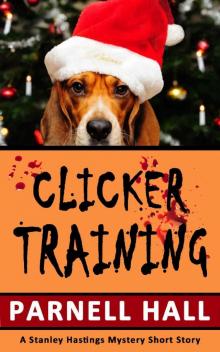 Clicker Training
Clicker Training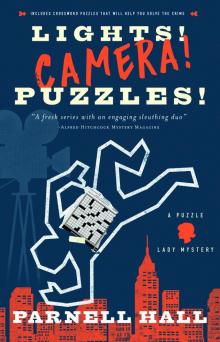 Lights! Camera! Puzzles!
Lights! Camera! Puzzles!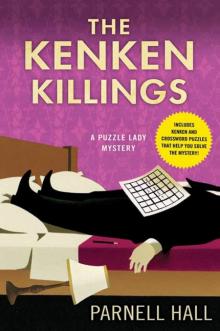 The KenKen Killings
The KenKen Killings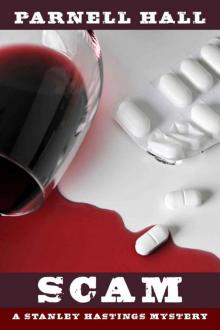 12-Scam
12-Scam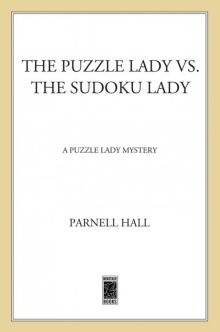 The Puzzle Lady vs. the Sudoku Lady
The Puzzle Lady vs. the Sudoku Lady 2 Murder
2 Murder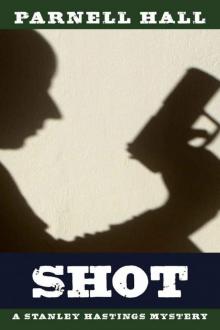 7 Shot
7 Shot You Have the Right to Remain Puzzled
You Have the Right to Remain Puzzled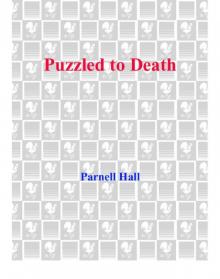 Puzzled to Death
Puzzled to Death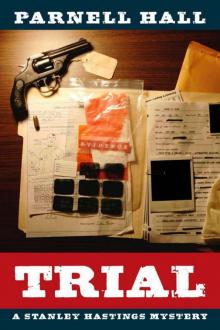 11-Trial
11-Trial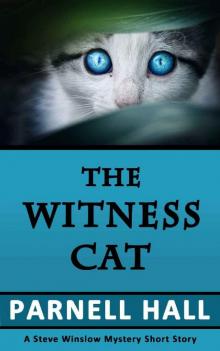 The Witness Cat (Steve Winslow Mystery)
The Witness Cat (Steve Winslow Mystery)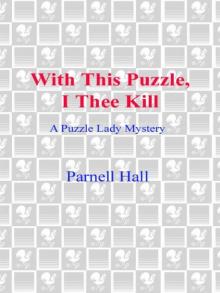 With This Puzzle, I Thee Kill
With This Puzzle, I Thee Kill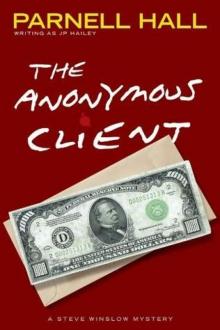 The Anonymous Client sw-2
The Anonymous Client sw-2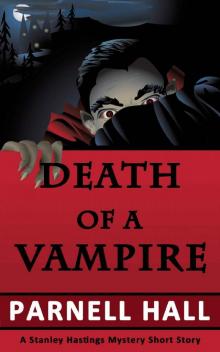 Death of a Vampire (Stanley Hastings Mystery, A Short Story)
Death of a Vampire (Stanley Hastings Mystery, A Short Story)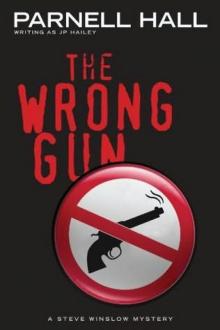 The Wrong Gun sw-5
The Wrong Gun sw-5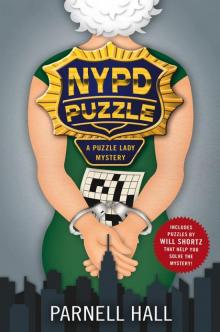 NYPD Puzzle
NYPD Puzzle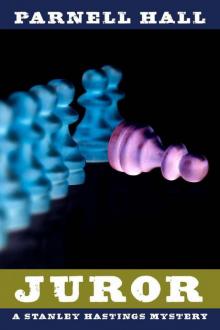 6 Juror
6 Juror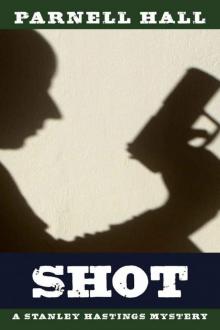 07-Shot
07-Shot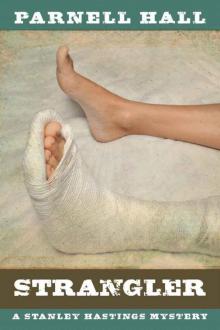 04-Strangler
04-Strangler 02-Murder
02-Murder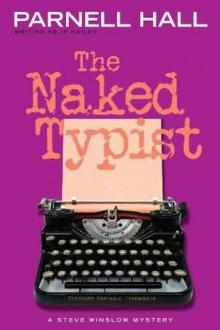 SW04 - The Naked Typist
SW04 - The Naked Typist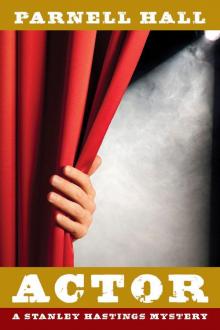 Actor
Actor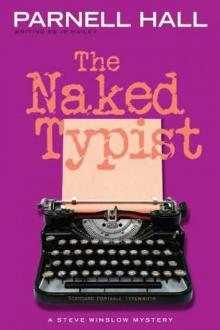 The Naked Typist sw-4
The Naked Typist sw-4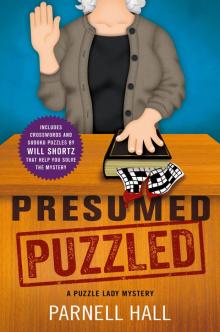 Presumed Puzzled
Presumed Puzzled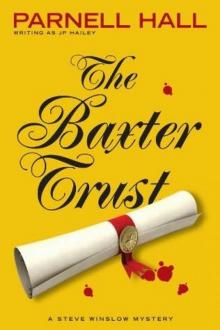 SW01 - The Baxter Trust
SW01 - The Baxter Trust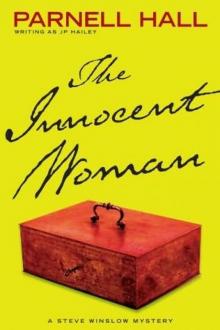 SW06 - The Innocent Woman
SW06 - The Innocent Woman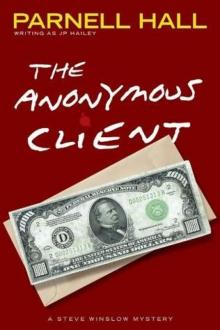 SW02 - The Anonymous Client
SW02 - The Anonymous Client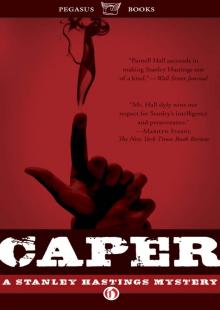 Caper
Caper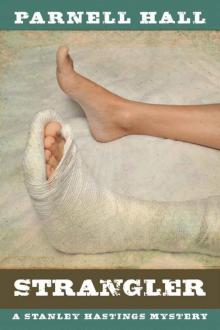 4 Strangler
4 Strangler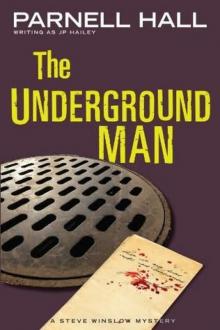 The Underground Man sw-3
The Underground Man sw-3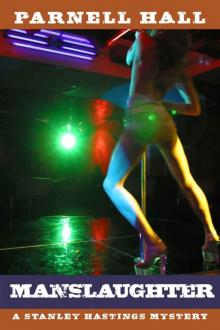 Manslaughter (Stanley Hastings Mystery, #15)
Manslaughter (Stanley Hastings Mystery, #15)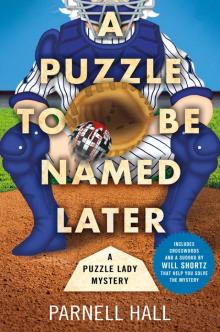 A Puzzle to Be Named Later--A Puzzle Lady Mystery
A Puzzle to Be Named Later--A Puzzle Lady Mystery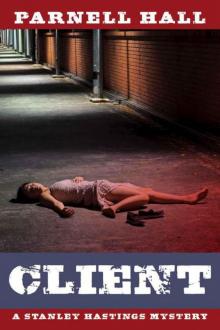 05-Client
05-Client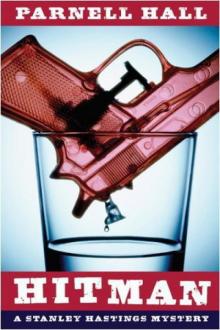 16 Hitman
16 Hitman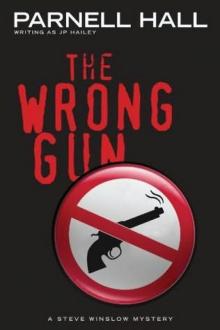 SW05 - The Wrong Gun
SW05 - The Wrong Gun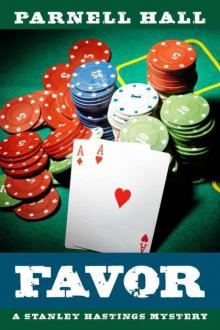 3 Favor
3 Favor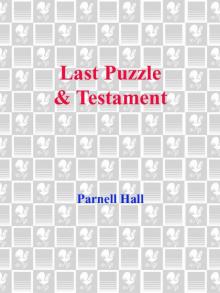 Last Puzzle & Testament
Last Puzzle & Testament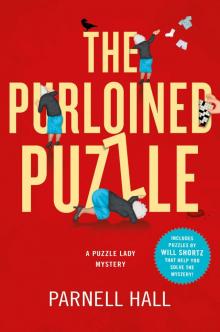 The Purloined Puzzle
The Purloined Puzzle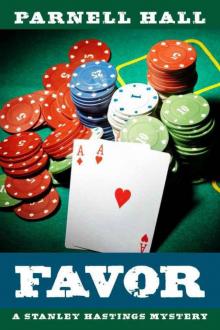 03-Favor
03-Favor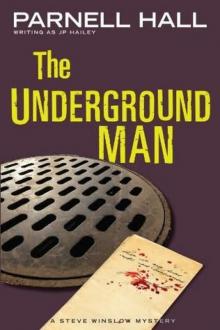 SW03 -The Underground Man
SW03 -The Underground Man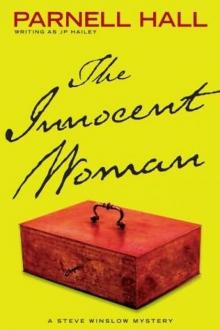 The Innocent Woman sw-6
The Innocent Woman sw-6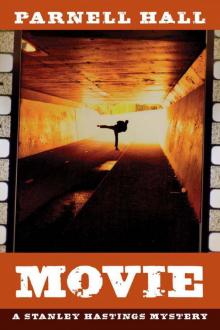 10 Movie
10 Movie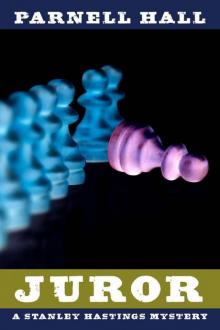 06-Juror
06-Juror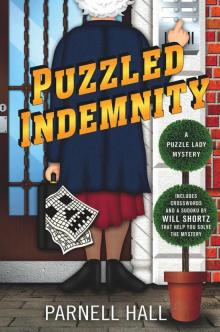 Puzzled Indemnity
Puzzled Indemnity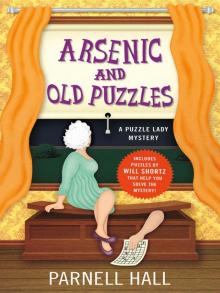 Arsenic and Old Puzzles
Arsenic and Old Puzzles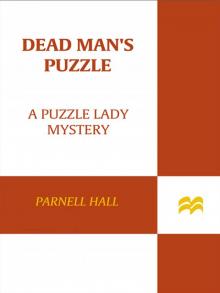 Dead Man's Puzzle
Dead Man's Puzzle Safari
Safari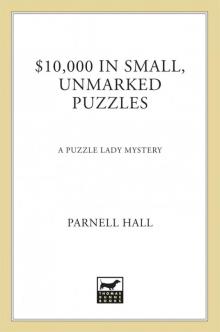 $10,000 in Small, Unmarked Puzzles
$10,000 in Small, Unmarked Puzzles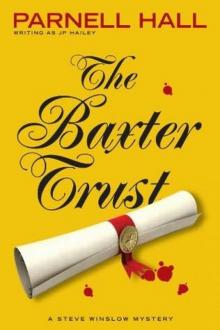 The Baxter Trust sw-1
The Baxter Trust sw-1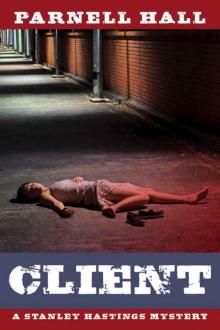 5 Client
5 Client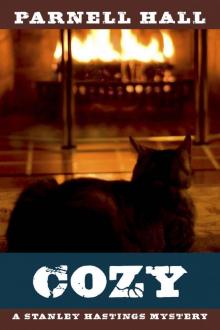 Cozy (Stanley Hastings Mystery, #14)
Cozy (Stanley Hastings Mystery, #14)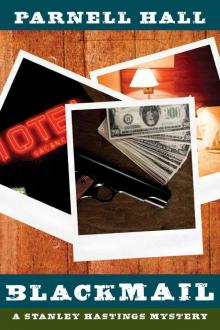 Blackmail
Blackmail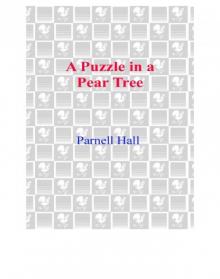 A Puzzle in a Pear Tree
A Puzzle in a Pear Tree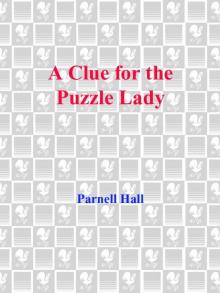 A Clue for the Puzzle Lady
A Clue for the Puzzle Lady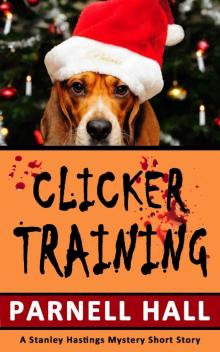 Clicker Training (Stanley Hastings Mystery, A Short Story)
Clicker Training (Stanley Hastings Mystery, A Short Story)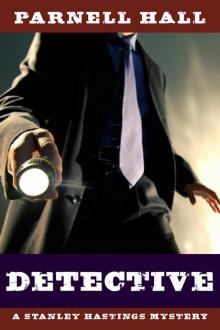 Detective (Stanley Hastings Mystery Book 1)
Detective (Stanley Hastings Mystery Book 1)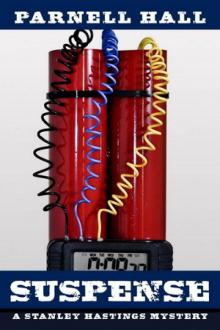 13 Suspense
13 Suspense